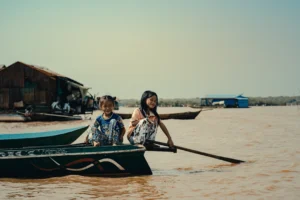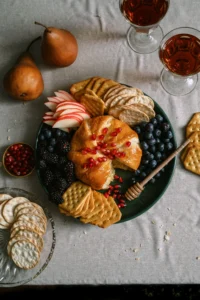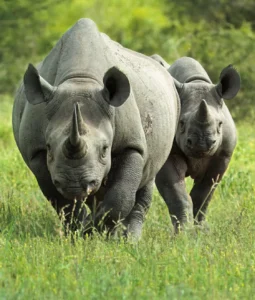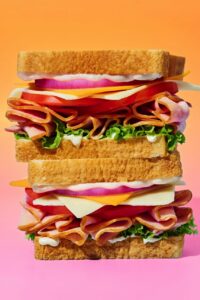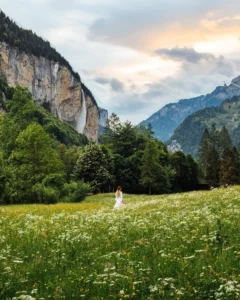
I would tell most people that it’s not necessary to be a professional to be an artist. It’s not necessary to be a professional to be fulfilled by the things you do. We do sports and no one ever asks if we should be making money doing it.
Lou Noble
You can also listen to this episode on iTunes, Pocket Casts, Spotify, Castbox, and Google Podcasts.
Our 365 Days of Photography Course is the ultimate learning experience for new photographers and even those with some experience. This course, presented in bite-sized lessons, teaches you the essentials of
Elevate your photography journey with us – become a part of our community today!

In this episode, I talk to portrait photographer Lou Noble, also known as louobedlam on Flickr and Instagram. Lou’s full-time job is completely unrelated to
Lou and I talk about:
- Why he’s not interested in making
photography his full-time job - The pros and cons of working on long-term
photography projects - How he works with models during his analogue and digital shoots
& much more!
Here is a preview of our conversation with Lou Noble.

Q: Do you find that movie sets inspire you or have some kind of effect on you as a photographer?
Lou Noble: Maybe not for the reasons one would expect. Usually, we go to interesting locations or we shoot at interesting times of day. Yesterday, we were shooting right from 10 a.m. to 8 p.m. I got to see dusk, sunset, and golden hour. Little things. There were high winds last night. The wind was so intense that you could see the particles in the lights we were using. That really engaged my creative brain.
As a portraiture artist, it’s really faces that I’m inspired by. I get to see so many people. It’s not uncommon that I’ll ask someone – not while we’re shooting, but after the shoot is over and during my downtime – if I can take their picture. I’ve made a bunch of friends from my years working in Hollywood, and it’s not uncommon that I’ll take their picture when I can.

Q: It’s really nice to have that while you’re working because you’re also nurturing that creative side of yours.
Lou Noble: I was actually talking to someone at work, and they were dissatisfied with where they were in their career. I suggested that they find some kind of artistic practice to do when they weren’t working, something that makes going to work easier. When you get home, you can write or draw or take pictures or set up a shoot, something like that. I’ve always been inspired by the idea that you don’t have to be taking pictures to be a photographer. You don’t have to be doing art every moment to consider yourself an artist. Sometimes, being an artist means taking the downtime to process the things you’ve taken in, to think about art, to read about art, to just engage in the world through an artistic lens.
I’ve really gotten into this idea in the past five or six years: constantly producing isn’t all that art is. Art is about a state of mind, about how you engage with the world. You don’t have to be producing to be an artist. That notion is tied into our current society’s capitalistic structure. When I was a kid, it was always: “What are you going to be? What are you going to do?”
Here’s a great example. I was telling someone about The Photographic Journal the other day, and they asked, “Have you monetized it?” To so many people, it’s so important that when you do something, you have a monetary result, that it gives you back something. A lot of that is due to people being financially insecure and things not being as safe in the world. People want to be feel like what they’re doing means something, and the way they can do that is if it gives them money. For me, it’s much more about a state of being, about how you engage with the world, how you look at the world. I think it was Dorothea Lange who said that the camera teaches you to see without a camera.

Q: You’re the editor-in-chief of The Photographic Journal. You enjoy surfing and taking photos. You have so many things going on! How do you juggle all of that without burning yourself out?
Lou Noble: I’ve got a lot of free time. When I work on set, most of that time is spent doing whatever I want. I’m basically a living fire extinguisher in terms of my utility on set. I sit there. If and when something happens, I will act. Until then, I’m pretty much left to myself. Most of the day I’ll be reading. I started learning Spanish. It made working with, and eventually helping to run, the journal pretty easy because I had all this free time during the day.
Because my job is freelance, I’ll work on a project for four or five weeks and I can schedule as much time off as I want after that. For this particular job, I’m doing five weeks. I figured I’ll take two to three weeks off and surf. That kind of flexibility allows me to indulge in my other hobbies as much as I want. For me, it’s easy. When I talk to other people, I do tell them that you have to really prioritize your own happiness and your own satisfaction. If that means making a little less money or working a little less, then I always think it’s vital to do that.




